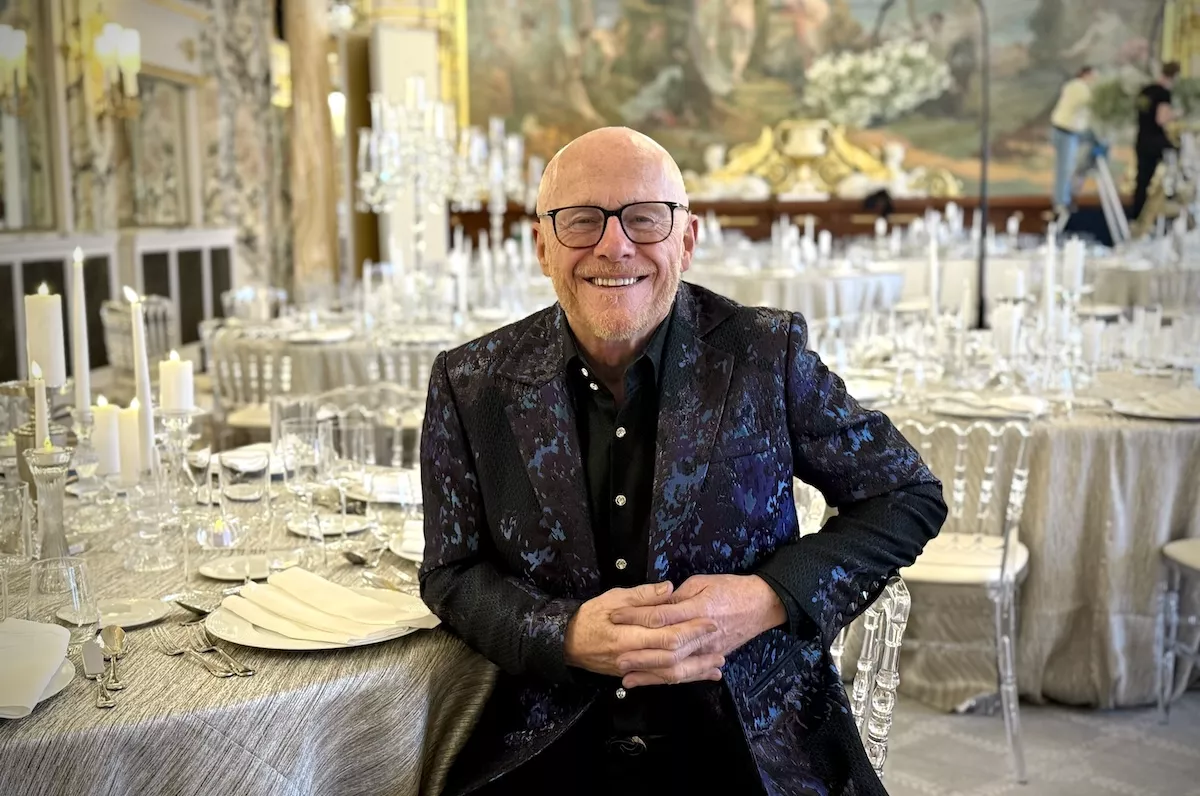There are fundraising galas, and then there’s the Butterfly Ball. Held at the Hôtel de Paris in Monaco, the event has grown from a modest dinner with a few tables into a philanthropic powerhouse that, this week, marked its 10th anniversary — raising more than €1 million for Caudwell Children and Caudwell Youth.
At the centre of it all is John Caudwell, a Monaco resident and one of Britain’s most successful entrepreneurs, who made his fortune founding and selling mobile phone giant Phones4U. But what he’s built in philanthropy is, in some ways, just as ambitious — and deliberately so. “We’re very businesslike,” he says. “We make every pound deliver the maximum value.”
This is charity, run like a company — and that’s precisely why it works.
The business of giving
From the outside, the Butterfly Ball sparkles like any other society event. Inside, however, it operates with the precision of a finely tuned business — a reflection of how John Caudwell approaches all his current ventures, from philanthropy to property, real estate finance, nautical technology, and luxury yachting.
The idea was born at one of his earliest galas, when a young girl with muscular atrophy painted an image that came to define the charity. Below a dividing line were small, fragile butterflies with crumpled wings; above it, bright butterflies soaring freely. It was a picture of transformation — a child’s interpretation of the power of Caudwell Children.
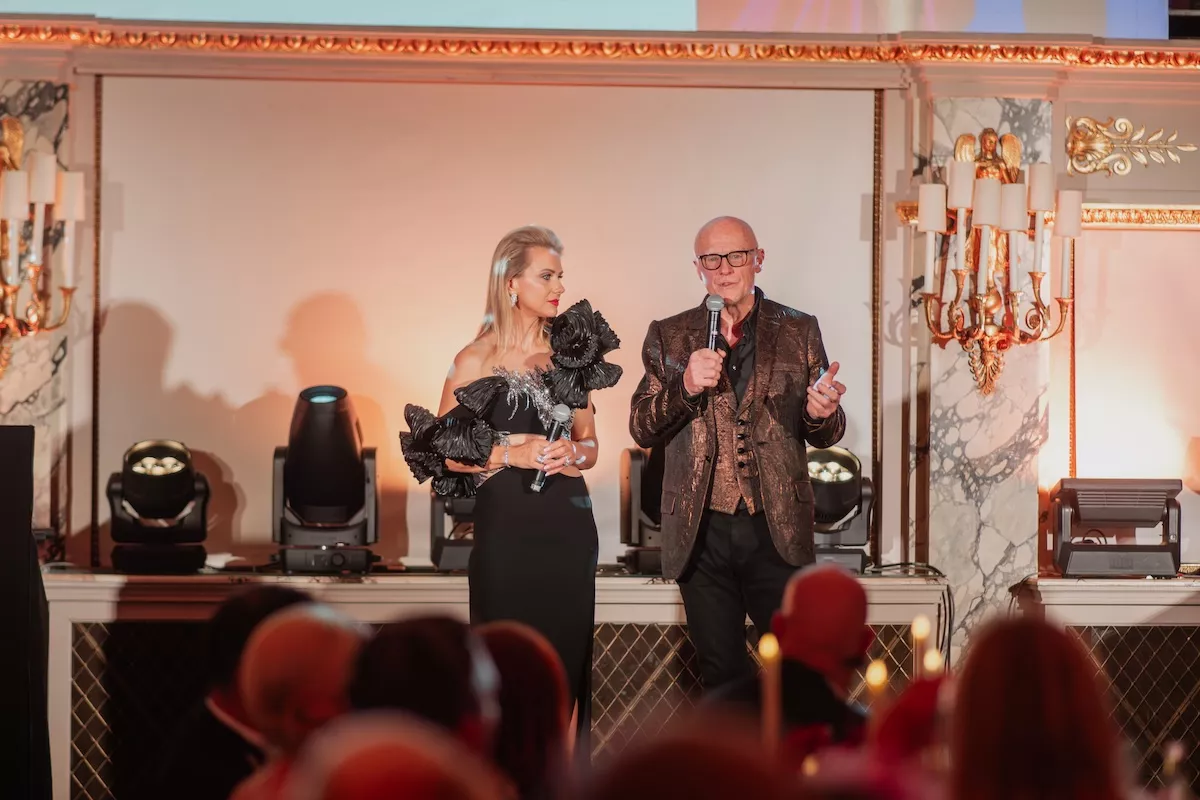
Guests were prepared to pay thousands for the painting — money that would go towards a £25,000 motorised wheelchair for the little girl’s sister. But instead of selling it to the highest bidder, John Caudwell saw an opportunity to think bigger. He reframed the moment, inviting guests to fund “half a wheelchair”, “a full wheelchair”, then multiples. The momentum built — five, ten, eventually 17 wheelchairs were funded. What began as a child’s drawing became the spark for a new kind of philanthropy — one powered by strategy, scale, and measurable impact.
That same approach drives the gala today. Each year, Caudwell donates a week aboard his yacht, worth €700,000 in peak season. He has it underwritten in advance through brokers, guaranteeing a minimum return before the event even begins. Then, on the night, the bidding can soar to €350,000 or more — often multiple times over, as he deftly turns one lot into several.
He also personally contributes an additional third of all the funds raised, effectively covering his charities’ administration costs and ensuring every donation goes directly to the children. It’s not just generosity; it’s design — philanthropy built with a business plan.
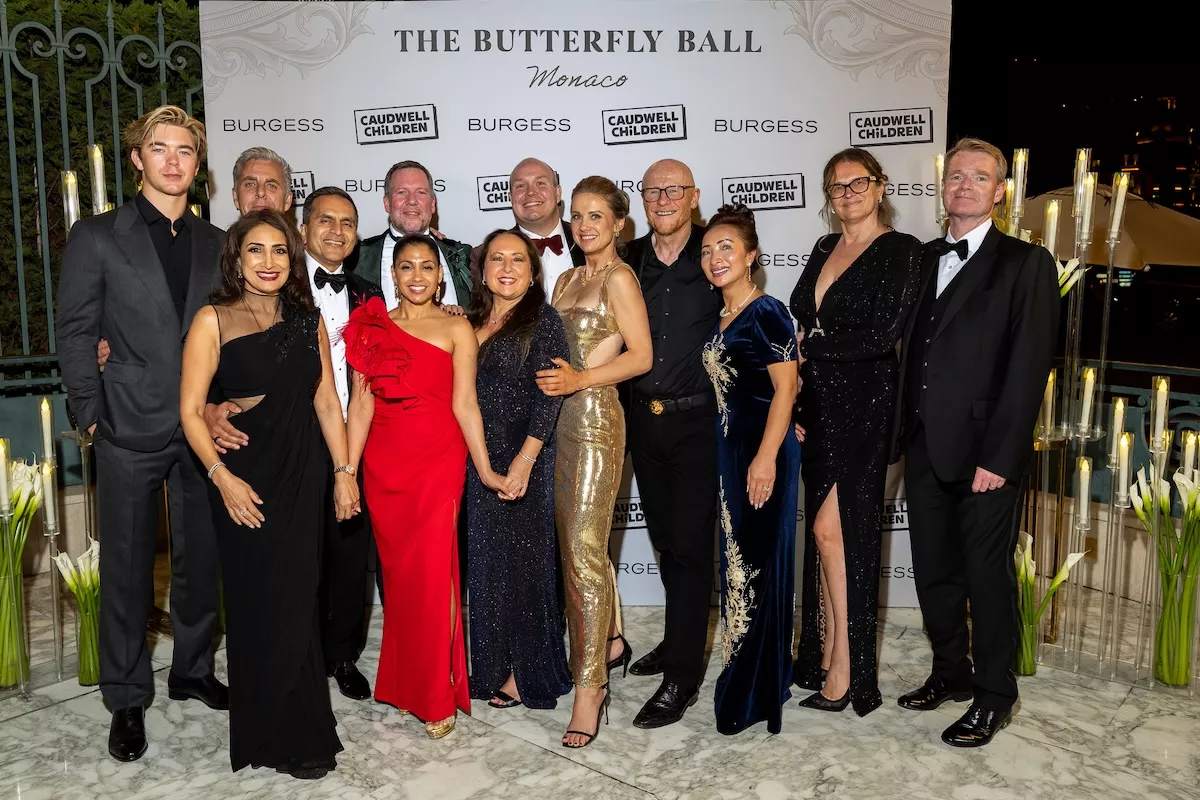
A circle of givers
One of the most innovative structures within Caudwell’s philanthropic model is the Life-Changers Circle — a group of high-net-worth individuals who pledge £1 million over ten years.
“It started during Covid,” Caudwell says. “I wanted to find people who were genuinely philanthropic, who wanted to make a long-term difference.”
The circle isn’t just a financial mechanism. It’s a core community of trusted supporters who join Caudwell for dinner at his home, and attend the charity’s major events — including the Monaco and London Butterfly Balls — bringing their own networks into the fold. “They come, they support, and they’re generous,” he says.
The loyalty is strong. “Most of those people turn up every year,” Caudwell explains. “They’re proud of being part of it, and they genuinely care about what we’re doing.”
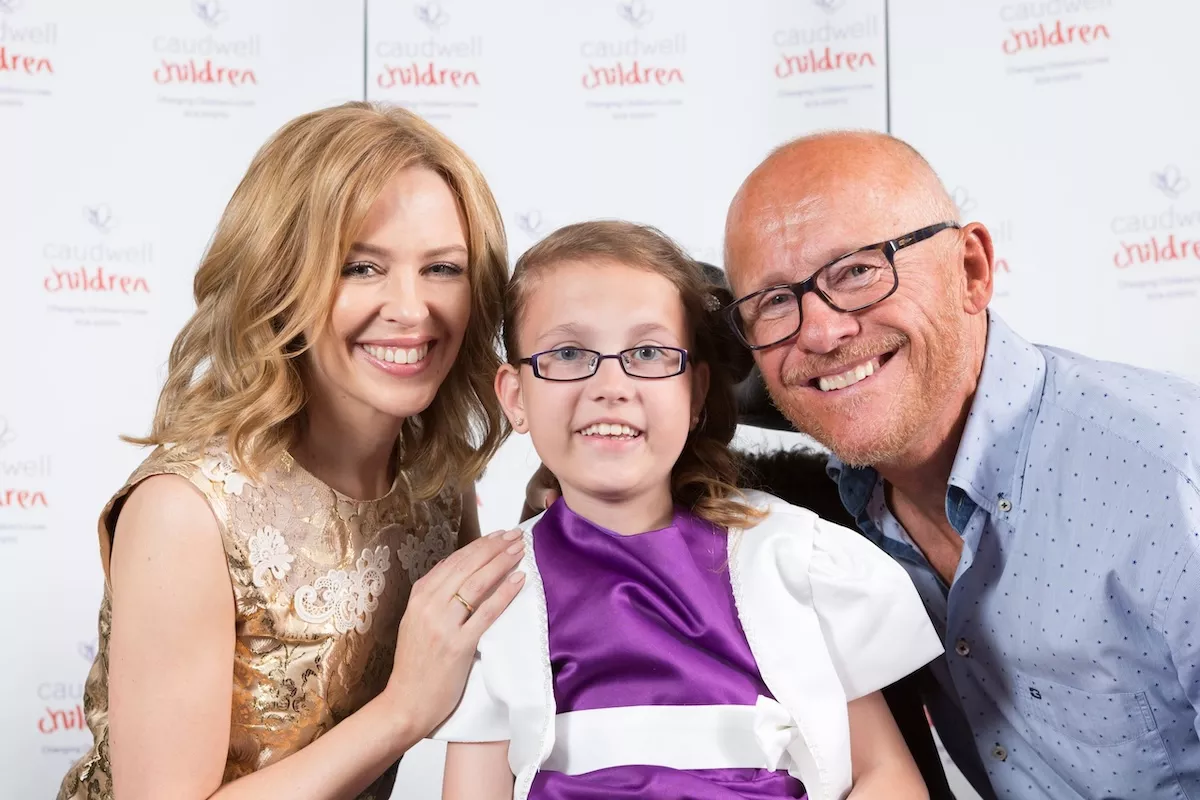
The stories that stay with him
After more than two decades of running Caudwell Children, John Caudwell has seen thousands of lives transformed. But some truly standout.
There’s the boy with cerebral palsy who used to drag himself across the kitchen floor, wearing through his jeans until his parents stitched on leather patches. “We sent him to the States for an SDR operation,” Caudwell recalls. “Then two years of physiotherapy. At the London Ball, he ran across the stage and jumped into my arms. That’s an unbelievable transformation. He was destined to have no legs for life — and suddenly he could run.”
Then there was the mother of a girl with severe autism, who attended one of the foundation’s five-day training courses. “She practiced what we taught every night,” he says. “On the Friday, she said, ‘My daughter sat on my knee last night and said, Mummy, I love you.’ Can you imagine what that meant to a mother who had never felt any affection from her child?”
For Caudwell, moments like that cut through everything. “That level of transformation shows that it is possible. And we see it, time and time again.”
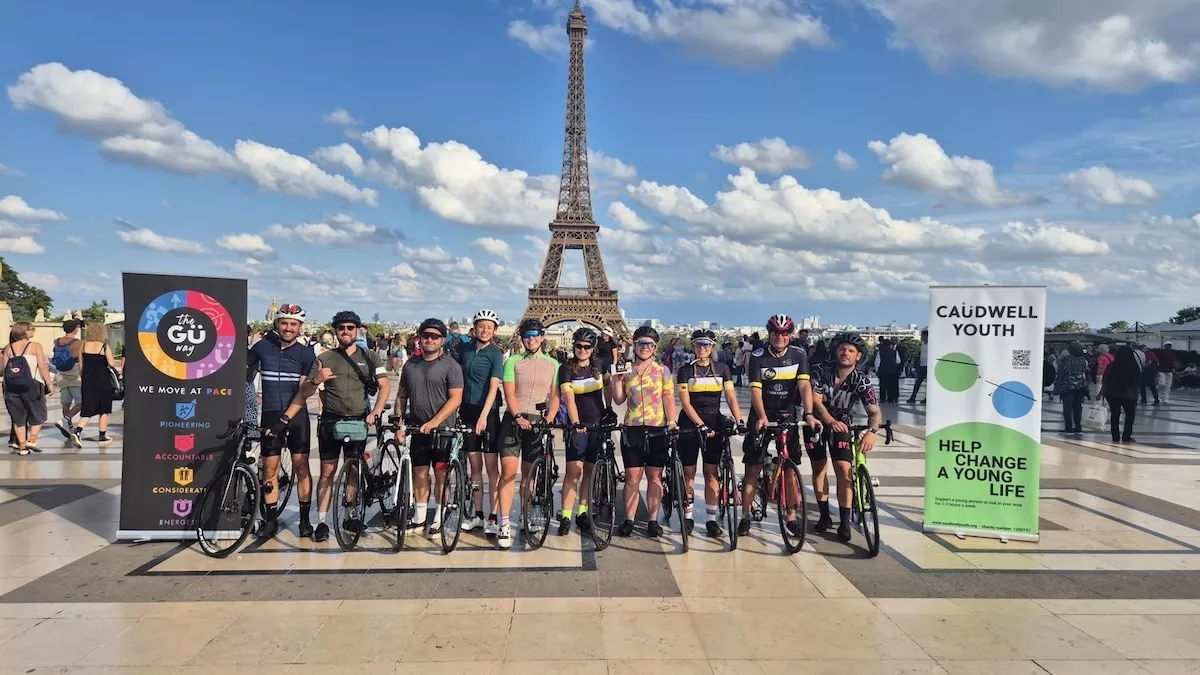
Scaling up: the launch of Caudwell Youth
While Caudwell Children supports young people with disabilities and autism, Caudwell’s newest initiative — Caudwell Youth — tackles an entirely different crisis: the lives of young people at risk.
“We’re looking after young people with histories of criminality, abuse, neglect, drug use, mental health problems,” he explains. “Some have been sexually trafficked. Others are facing serious trauma. And in many cases, we’re the first people they’ve ever trusted.”
The model is simple but effective: trained volunteer mentors are paired one-on-one with vulnerable youths, providing guidance, stability, and emotional connection. And the results are startling.
“In just three years, we’ve reduced repeat criminality by 93%,” Caudwell says. “That’s not just a number. That’s lives changed, crimes prevented, victims protected — and millions saved in public costs.”
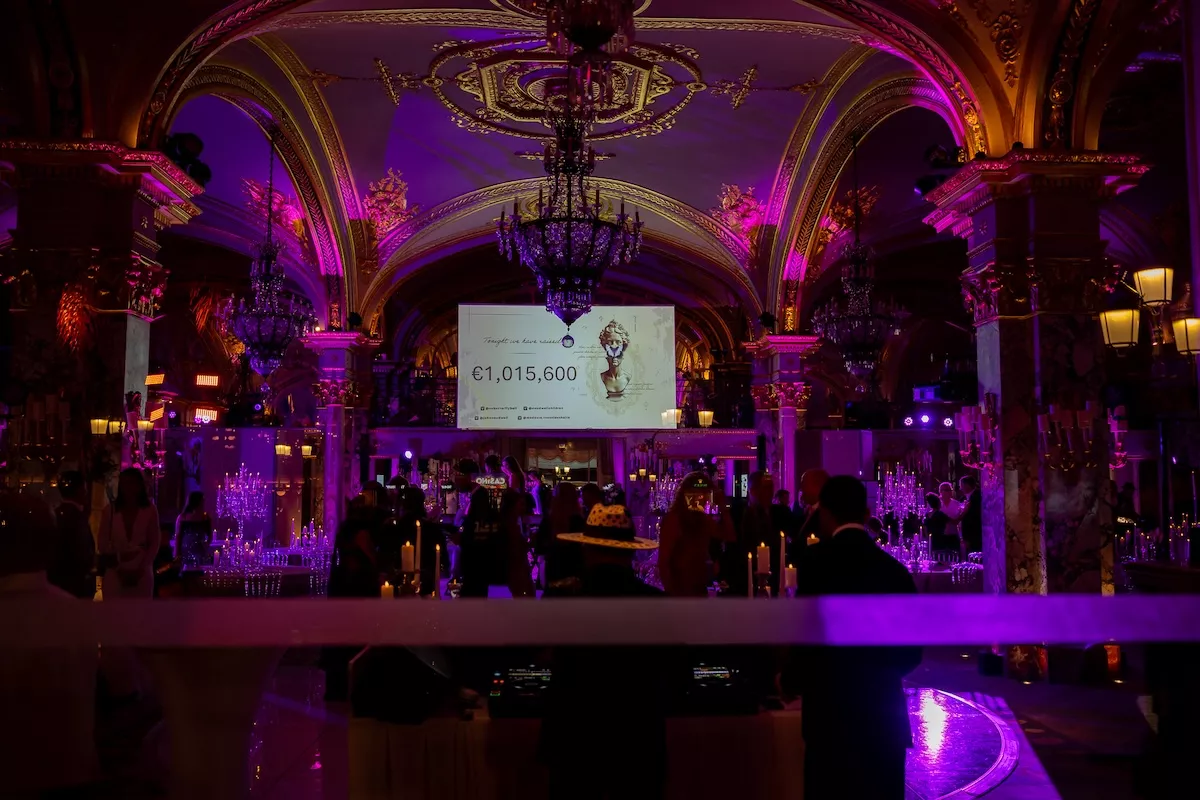
Why he does it
It’s not for headlines or legacy. It’s because, as he puts it, “What better cause is there than a child who hasn’t had much of a life — and giving that child a future?”
Caudwell’s motivation is also rooted in frustration — not only with inefficiency in the charity sector, but with what he sees as a lack of long‑term vision from government. “The government is always at the wrong end of the stick,” he says. “They’re constantly fixing the consequences of problems they ignored. Nine times out of ten, it costs them a hundred times more than it would have if they’d acted early.”
He believes that the answers are already clear — they just need the will to implement them. “They agree with me entirely,” he says, referring to conversations he’s had with senior UK politicians. “But agreeing is one thing — doing something is another. They’re too focused on the next election, not the next generation.”
For Caudwell, philanthropy fills the void left by short‑term politics. “If everyone’s always thinking about the next election,” he adds, “nothing actually gets done.”
Looking ahead
For Caudwell Children, autism support is now a central focus — and with good reason. The condition is rising sharply, and for many families, navigating the diagnosis and care system can be overwhelming.
“Autism is growing dramatically,” says Caudwell. “We don’t know exactly why, but I don’t believe it’s just better diagnosis. There’s something bigger happening biologically — in pregnancy or early infancy — we just need to figure out what it is.”
Against a backdrop of long public health delays and diagnostic age thresholds that often stretch to seven or eight-years-old, Caudwell Children offers assessments in just two days — a turnaround that, for many families, is life-changing. But diagnosis is only the beginning.
The foundation provides intensive support to parents, helping them understand how to communicate with their children. One-on-one training sessions, behavioural strategies, and group workshops offer parents practical tools — while children receive targeted therapy to support emotional regulation, social connection and development.
Crucially, the charity extends its focus to the entire family unit. “We don’t just help the child,” says Caudwell. “We support their siblings and parents too. Because when the parents collapse, the whole family unit can fall apart.”
The need is vast, and the ambition is growing to meet it. “What we’re doing now is probably only 10% of what needs to be done,” he says. “But we’re building. We’re growing.”
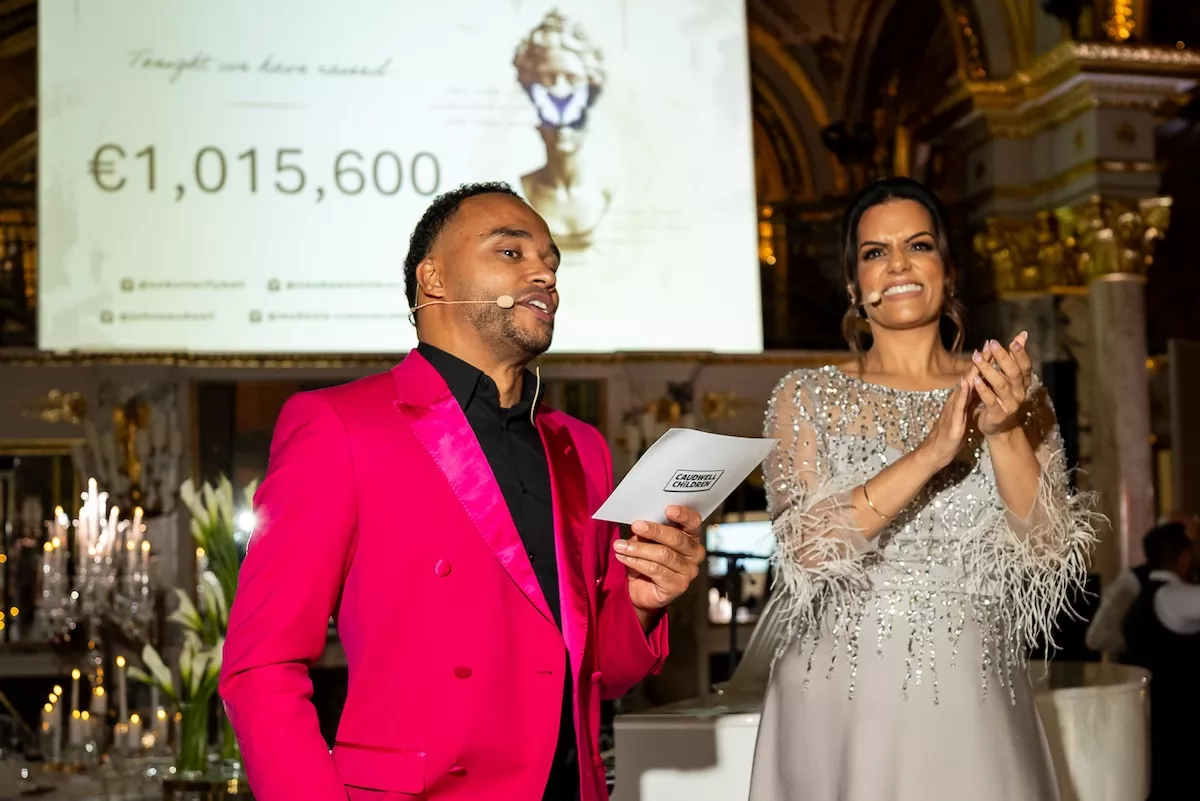
A night with purpose
On Wednesday night, the Butterfly Ball Monaco marked its 10th anniversary with €1,015,600 raised, thanks to the generosity of a community Caudwell describes as “extraordinarily loyal”. The gala, co-hosted by racing driver and disability advocate Nicolas Hamilton and award-winning DJ and presenter Neev Spencer, brought together philanthropists, celebrities, and longtime supporters for a spectacular evening of fundraising and celebration.
Caudwell’s wife Modesta Vžesniauskaitė, who founded the Monaco edition of the Butterfly Ball and remains instrumental to its success, reflected on its evolution: “When I created the Butterfly Ball Monaco 10 years ago, I dreamed of something magical — an evening that reflected the beauty of Monaco but raised essential funds for the children who need us most.”
Now, a decade later, it’s a high-profile, highly-anticipated philanthropic event in the Principality, with support from partners like Burgess Yachts and creative direction by Billy Folchetti, known for his immersive event experiences. Guests enjoyed a three-course dinner, performances from Anastasian, The Troubadours, and DJ Filippo, and an auction led by renowned auctioneer Charlie Ross, featuring once-in-a-lifetime experiences, including a Formula E VIP experience with Sébastien Buemi.
As dinner turned to dancing beneath the chandeliers of the Hôtel de Paris, the evening stood as a celebration of what purposeful giving can achieve. The Butterfly Ball Monaco was elegance and generosity in equal measure — a testament to how philanthropy, when driven by strategy and heart, can deliver lasting change.
“I’m immensely proud of what we’ve achieved,” said Caudwell. “The event has grown in scale and ambition, but most importantly, it’s transformed the lives of children across the UK. Together, we’re helping to build a world where every disabled or autistic child has the chance to thrive.”
See also:
Interview: Billionaire John Caudwell on reviving Le Provençal
Stay updated with Monaco Life: sign up for our free newsletter, catch our podcast on Spotify, and follow us across Facebook, Instagram, LinkedIn, and Tik Tok.
Main photo of John Caudwell, credit: Cassandra Tanti. All other photos courtesy of Caudwell Group
